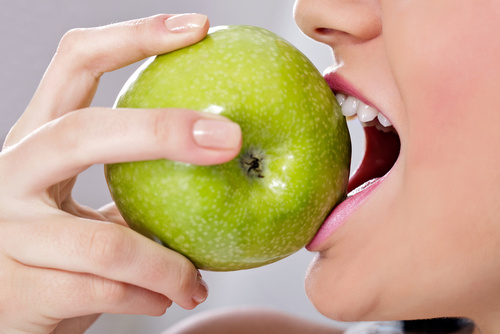Tooth decay is an infectious microbial disease which leads to demineralization of the hard inorganic part, and the dissolution of the organic part, of the tooth structure. Tooth decay cannot be taken lightly, and it is extremely important to be aware of the causes of its occurrence, and the measures that can be taken to avoid its incidence. There are some simple steps that have to be followed in a routine manner to keep dental cavities at bay. They are as follows:
- Brush twice daily: If you are in the habit of brushing your teeth twice daily with fluoridated toothpaste, you can consider yourself to be somewhat in the safe zone. During the night when a person is asleep, the human body mechanism is such that the salivary flow reduces automatically. The teeth are at a higher risk for getting decayed, as there is no flushing action of saliva and the intensity of bacterial attack is at its maximum level. Another main benefit of brushing last thing at night is that the pellicle formation gets interrupted. Pellicle (biofilm) formation occurs within twelve hours. If this pellicle is left undisturbed, it turns into plaque, and can later undergo calcification and become hard and difficult to remove.
- Flossing at least once daily: Even if we brush twice daily, the inter-dental (between the teeth) areas remain untouched because the bristles are not able to reach those areas. The inter-dental surfaces remain clean and therefore free from cavities due to flossing.
- Rinsing the mouth after every meal: When we consume any type of meal or snacks, it is always advisable to rinse the mouth with water. The water should be swished vigorously so that all the food remnants that are stuck to the tooth surfaces and cheeks are flushed out. This habit is extremely effective in the dental cavity control routine.
- Reduce the consumption of sweet, starchy and sticky foods or drinks:
Generally, soft drinks and chocolates are favorites for most of the people. These are unhealthy for the body on the whole, and have detrimental effects on teeth when consumed in large quantities. You must strive to avoid, or at least lessen, the quantity of consumption of such foods. The main idea is to reduce the level of sucrose, which forms an excellent source of nutrition for cavity-causing bacteria. The sticky foods are not self-cleansable, and require proper brushing for removal afterwards, which is usually not possible most of the time.
- Inclusion of fruits and fresh green vegetable in your diet: Munching on fruits and green vegetables help in strengthening your teeth, and the fibers present within have a cleansing action on the teeth.
- Professional oral prophylaxis once in every six months: Even after brushing twice daily and flossing regularly, there are some deposits around teeth which cannot be removed by normal brushing. That is why dentists advise you to undergo professional oral prophylaxis (scaling and polishing) at least once every six months. All the hard deposits are washed off, and the tooth surfaces are smoothened by the process of finishing and polishing.
Such habits as are listed above will help can prevent dental decay, and help you maintain good oral health.
Contact a dentist or dental hygienist at Water Brook Dental in Washington DC for a dental check-up and other dental needs. Water Brook Dental has two locations in Washington DC. The Columbia Heights location is very conveniently located to Downtown DC, Northeast DC, Adams Morgan, Dupont Circle, Logan Circle, U-Street Corridor, Mount Pleasant and many other parts of Washington. The Eastern Ave NW location is conveniently located to Downtown Silver Spring, Takoma Park MD, Silver Spring MD, Colesville, and other parts of Maryland as well as Northern Virginia and other parts of Virginia.


Leave A Comment